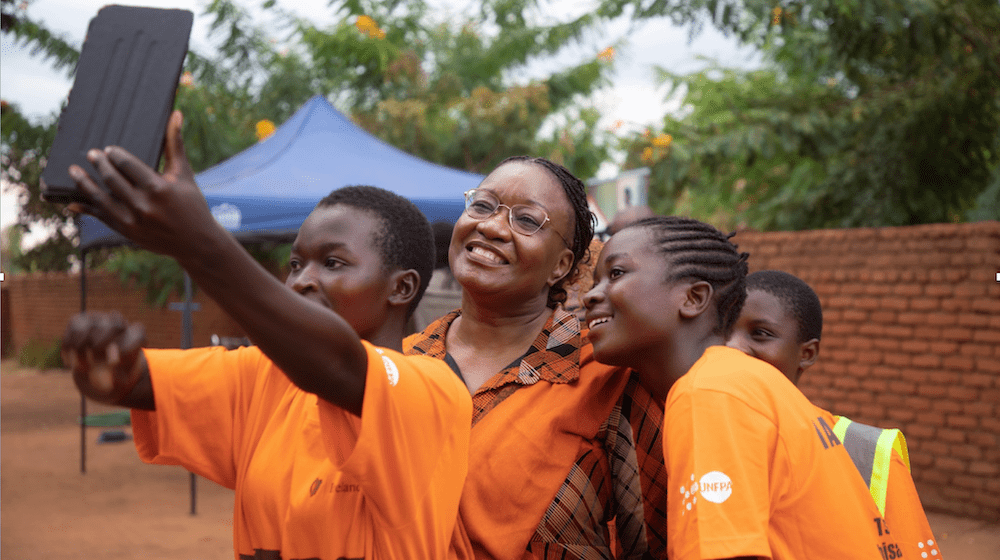Opinion editorial
Lydia Zigomo, UNFPA Regional Director for East and Southern Africa
For humanity to progress, people must be counted in all their diversity, wherever they are and whoever they are.
These were the words of UNFPA Executive Director Natalia Kanem this World Population Day. Indeed, to go uncounted is to be made invisible and as a result, left unserved. This contributes to a 10-year-old girl being left with no health care when she is displaced during conflict. Or to an older woman with a disability having no safety net when a crisis strikes. It leaves a newborn in a remote indigenous community without the passport to protection that birth registration confers.
This brings to mind the story of 16-year old Doreen, on my recent trip to Malawi. She married very young and dropped out of school. Through a UNFPA-supported project that mentors girls in safe spaces, she ended her marriage and continued her education, hoping to turn into reality her dream of becoming a nurse and providing health services to communities.
This victory for one girl ties into a much greater effort.
Whether in Malawi or in Madagascar, where I was last week, I saw how climate change is affecting young women and girls, including in small island developing nations. The stories are many, of how communities come together to safeguard the dreams and futures of girl children.
Over the past 30 years, tremendous progress has been made in delivering sexual and reproductive health, UNFPA’s flagship report shows. Much of it has been made possible by increased availability of data and analysis, enabling better planning and monitoring. More countries are adopting an inclusive approach to data collection, including in East and Southern Africa. Tanzania involved people with disabilities in their 2022 census design, while in Malawi, people with albinism were included in the 2018 census. Globally, two in three countries conducting a census in the 2020 round included standardized questions on disability, many of them for the first time.
In the region, there is much to be proud of. Data shows that great progress has been made in sexual and reproductive health in the past 30 years. We have witnessed significant improvements in data collection and analysis, as well as technology. We are now able to access more comprehensive and precise information, enabling societies the world over to measure and achieve goals related to good health and the fulfilment of rights and choices.
These developments come at a critical juncture for women and young people’s sexual and reproductive health. In a matter of months, we will reach a landmark 30 years after the ground-breaking International Conference on Population and Development (ICPD) in Cairo in 1994. It was here that 179 governments adopted a revolutionary Programme of Action and called for women’s reproductive health and rights to take centre stage in national and global development efforts.
Yet, while we are seeing improvements in data collection, of grave concern are the gaps that are being exposed. This demonstrates that data that is reliable and inclusive is more important than ever – and it must be used as a tool to promote progress for all.
In an increasingly unpredictable world – with rapid population growth in some places, and climate change, conflict and crises everywhere – reliable population data is more important than ever, and must be used to reach and respond to the needs of those who have been left behind. With inclusive data, we can enable tailored solutions that are effective.
Only by investing in data systems to count people as they are, in all their diversity, will we be able to deliver fully on the ICPD’s call to action – the creation of a peaceful and prosperous future in which rights and choices can be enjoyed by all.
To end inequality, to grow peace and prosperity and to weave threads of hope, the world needs to do more for inclusion. We must ensure that, like Doreen, our girls in all their diversity are counted and visible as they seek to realise their dreams for a better future.


